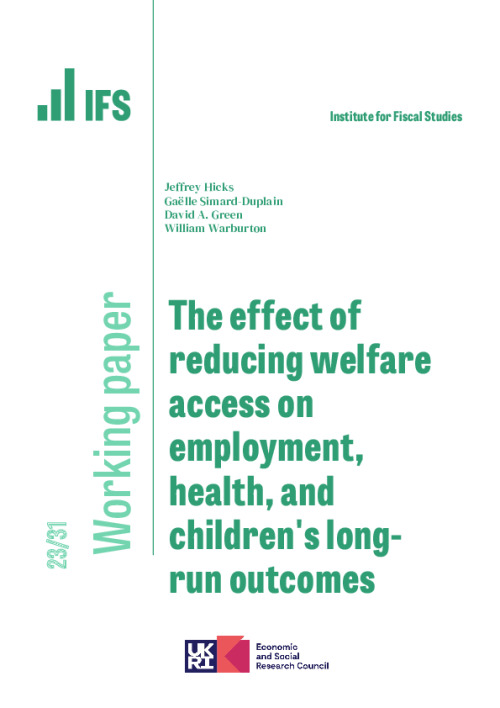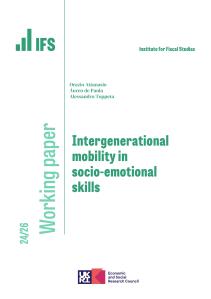Downloads

Download working paper here
PDF | 1.29 MB
Authors

Research Fellow University of British Colombia
David is a Research Fellow of the IFS and a Professor at the University of British Columbia.
September to December 2024
Postdoctoral Researcher University of Toronto
Assistant Professor Carleton University
Economist Enterprise Economic Consulting
Working Paper details
- DOI
- 10.1920/wp.ifs.2023.3123
- Publisher
- Institute for Fiscal Studies
Suggested citation
Green, D et al. (2023). The effect of reducing welfare access on employment, health, and children's long-run outcomes. 23/31. London: Institute for Fiscal Studies. Available at: https://ifs.org.uk/publications/effect-reducing-welfare-access-employment-health-and-childrens-long-run-outcomes (accessed: 30 June 2024).
More from IFS
Understand this issue

Sure Start achieved its aims, then we threw it away
15 April 2024

Retirement is not always a choice that workers can afford to make
6 November 2023

Liberal Democrat manifesto: a reaction
10 June 2024
Policy analysis

How do the last five years measure up on levelling up?
19 June 2024

A response to the Conservatives’ proposals to reduce growth in the health-related benefits bill
8 June 2024

The Conservatives and the Economy, 2010–24
3 June 2024
Academic research

Economics of Childhood Nutrition Workshop

Intergenerational mobility in socio-emotional skills
5 June 2024

The impact of labour demand shocks when occupational labour supplies are heterogeneous
28 June 2024